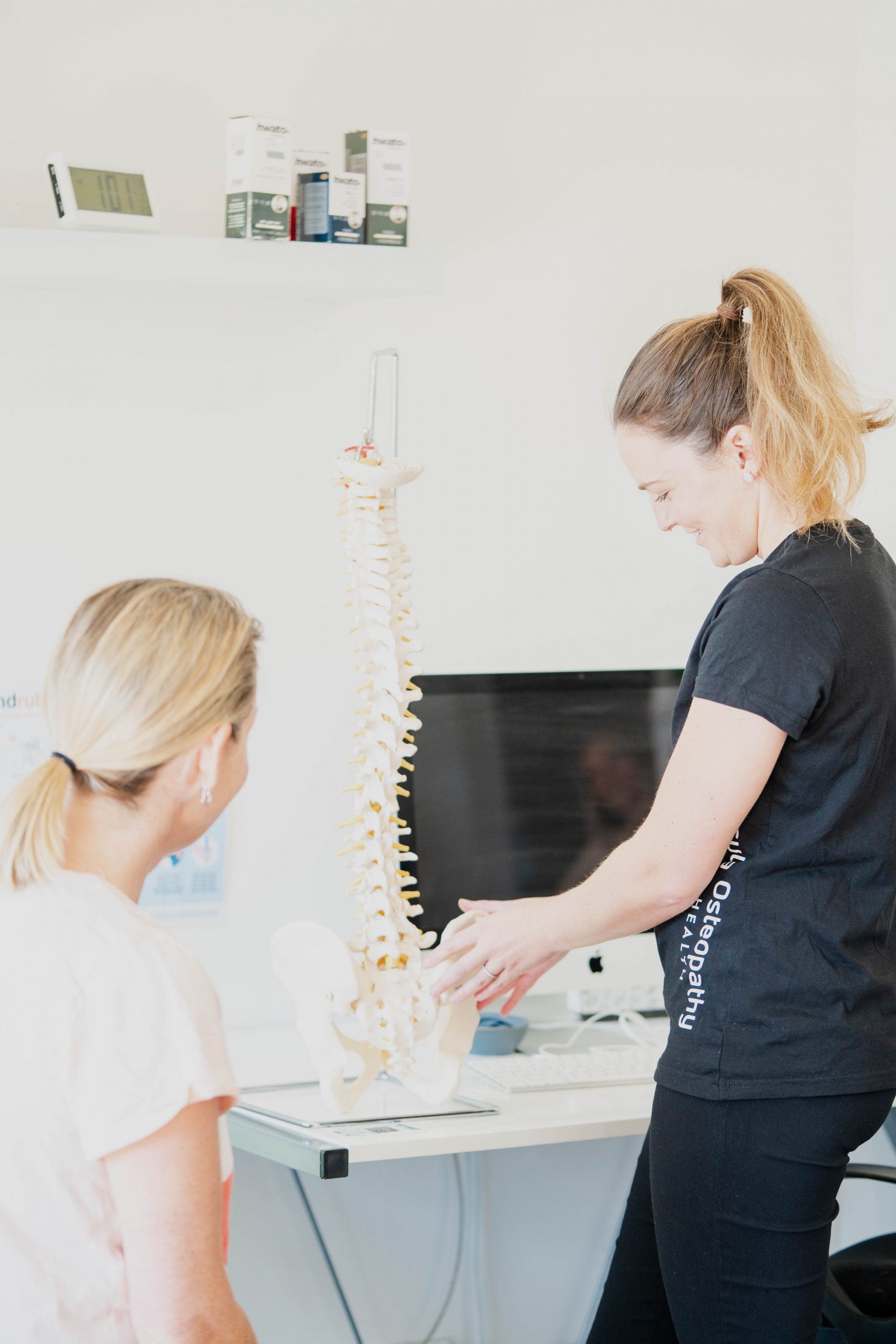Lower Back Pain
Low back pain is pain felt in your lower back or lumbar spine. Most people have lower back pain at some point in their life. For most people back pain comes on quickly (acute back pain), but then improves or goes away within three to six weeks. However, it is common for it to come back, with some people going on to develop more persistent pain (that lasts for more than three months).
What causes lower back pain?
The causes of back pain are not fully understood. Most people with back pain don’t have any significant damage to their spine. The pain comes from the muscles, ligaments and joints.
Common contributors to back pain include:
- repetitive or heavy lifting (manual handling)
- sudden awkward movement
- not getting enough regular physical activity (being sedentary)
- poor posture
- stress – muscle tension.
What to do if you have back pain?
- Stay as active as possible – talk to your Osteopath or doctor if you need specific advice for your situation
- Manage your stress
- Relaxing – learn some relaxation techniques to reduce stress levels, try some heat packs or gentle exercise to calm your nervous system
- Learn more about your particular injury – what makes it better, what makes it worse?
- Lift and carry safely – ask for help if something is too heavy to lift alone.
Exercise and low back pain:
Exercise is great medicine for lower back pain, with no specific type being the best. Just stay as active as you can, allowing for the restrictions in movement that may come with pain. If you enjoy gardening, then staying active may mean pottering in your garden, even if heavy jobs such as digging or pruning are too much for you. If you run regularly, staying active may mean continuing training but reducing the distances you run each week. This will all depend on the severity and presentation of your pain. Speak to your Osteopath or GP for specific advice for your situation.
If you are having persistent low back pain, a strengthening program may be necessary to help you overcome or manage your presentation. This should be relevant to the way you prefer to exercise.For example if you stayed active by walking, to gain further health benefits you now need to walk further or faster, walk up hills, or carry extra weights. It is important to seek guidance in this as each presentation of back pain is different and should be tailored to you.

